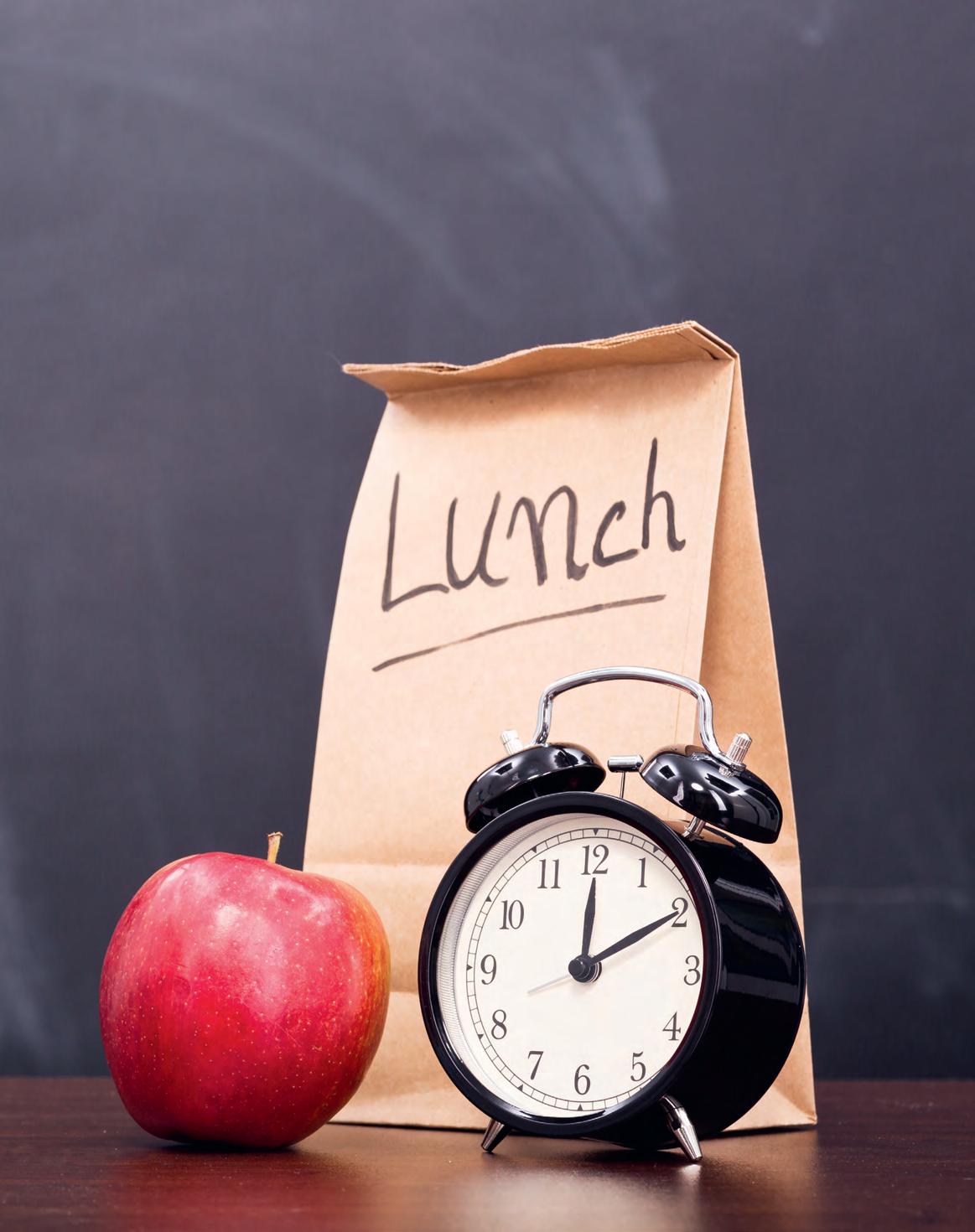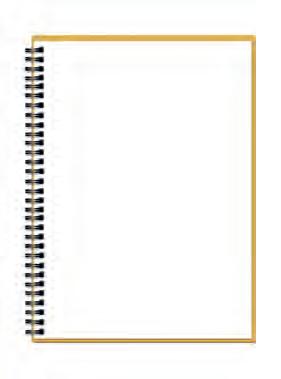









































































































































































































Engelsk for ungdomstrinnet
Synnøve Pettersen
Felicia Røkaas
BOKMÅL











































































































































































































Engelsk for ungdomstrinnet
Synnøve Pettersen
Felicia Røkaas
BOKMÅL

The book that you are holding in your hands will take you on a journey to places near and far in the past, present and future. It will even take you to magical faraway places where strange things can happen. On this journey you will be entertained by stories of ordinary and extraordinary people, amazing animals and fantasy creatures. You will also learn loads of interesting things about the English-speaking world, and meet some of the people who live there. Along the way you will learn and practice your skills in English by listening, reading, speaking and writing. The more you listen, read, speak and write, the better you will be. English opens up new worlds. Explore and be inspired by the people, places and stories in this book. We hope you will work hard and have fun too.
Stages 8 has five chapters. At the beginning of each chapter, you will find the Chapter Focus. These bullet points tell you what the chapter will cover.
Each chapter contains 8–13 texts. Each text has a glossary. The words in the glossary are there to help you read the text. You do not need to learn all the words in the glossary lists. Sometimes you will come across a word you do not know which is not in the glossary. Don’t panic. You can still understand the main points in a text even if you don’t know all the words.
You will find ten different kinds of tasks in Stages:
Starting Point: These tasks and activities help prepare you for the text.
Understanding: These tasks check your understanding of the text.
Your teacher will decide how you will do these tasks: orally or in writing.
Viewpoints: These discussion questions often ask you to give your opinion.
Language Lab: These tasks focus on grammar and language.
Vocabulary: These tasks help you learn new words and expressions.
Speaking Spot: These tasks get you talking and help you improve your pronunciation.
Writing Workshop: These tasks help you improve your writing skills.
Creative Corner: These activities ask you to be creative, through drawing, role play, making posters etc.
Digital Dive: These tasks send you to the Internet to learn more about a topic from the text.
Text Analysis: These tasks help you use specific terms for talking about literature.
At the end of each chapter you will find:
SPEAK & WRITE
These six longer tasks are connected to the topic of the chapter. These can be used as tests or for practice. Each chapter has two speaking tasks and four writing tasks.
This grammar course will help you improve your language skills. Each course presents certain grammar rules with examples. There are also exercises to help you practise the rules.
This writing course will help you improve your writing. You will learn how to build good sentences and paragraphs, how to write descriptions and summaries and how to plan and write longer texts. This course gives you explanations, tips, examples and exercises.
Next to some of the tasks in Stages you will see these symbols:
Your teacher will give you a handout.
This task makes you get up and move around.
This page number tells you where you can find help to complete the task. 000
1 SCHOOLDAYS 8
Find Someone Who ... 10 classroom game
All I Really Need to Know ... 12
Robert Fulghum essay extract
Whatif 16
Shel Silverstein poem
Reasons to Learn English 20 poster and quiz
Finding a Friend 23
Jane Clarke poem
Schools Around the World 25 photo story
The Worst Day Ever 30 text messages
Smart Ice Cream 34
Paul Jennings short story
Hogwarts 41 factual text
School Uniforms 45 five-paragraph text
Ex Poser 50
Paul Jennings short story
The World’s Oldest First Grader 55 factual text
Speak & Write 60 tasks
Language Work 61 grammar
Improve Your Writing Part 1 68 course and tasks
• reading, writing and speaking about life at school
• using the verbs to be, to have and to do
• making questions
• building vocabulary
• punctuating sentences
Crazy Creatures 74 factual text CHAPTER FOCUS
Famous Animals 79 factual text
Spider-swallowing 83
Brian Moses poem
Following Boo 86
Bobbie Pyron short story
Charlotte’s Web 94
E.B. White novel extract
Three Little Pigs 100
Roald Dahl poem
A Streetcat Named Bob 106
James Bowen memoir extract
The Call of the Wild 112
Jack London short story, adapted
Speak & Write 118 tasks
Language Work 119 grammar and tasks
Improve Your Writing Part 2 123 course and tasks
What is a Book? 128
• reading, writing and speaking about the animal world
• using the present simple
• finding the subject and verb
• writing paragraphs with topic sentences
Lora Duneta poem CHAPTER FOCUS
Let’s Talk About Travel 130 mind map
Remarkable Travelling Records 135 factual texts
The Pedlar of Swaffham 139 Retold by Hugh Lupton folk tale
The Lost Diary ... 144
Steve Barlow and Steve Skidmore diary
Scrooge 153
Charles Dickens play
The Wonderful Wizard of Oz 164
L. Frank Baum novel extract, adapted
An Epic Journey 171 factual text
Speak & Write 174 tasks
Language Work 176 grammar and tasks
Improve Your Writing Part 3 180 course and tasks
• reading, writing and speaking about travel and discovery
• using proper and common, plural and uncountable nouns
• using sequence words
• writing summaries
The United Kingdom 184 factual texts CHAPTER FOCUS
Four British Teens 192 monologues
Feeling Peckish 196 factual texts
The Dragon and Saint George 200 Anthony Horowitz legend + cartoon
Ireland 204 factual text
Fáilte Ireland 206 factual texts
Irish Dancing 210 interview
The Famine 213 Roisin Hambly poem
India 216 factual text
Incredible India 218 factual texts
My Sari 222
Debjani Chatterjee poem
Great Soul 224 factual text
A Tiger in the House 228 Ruskin Bond short story
Speak & Write 234 tasks
Language Work 235 grammar and tasks
Improve Your Writing Part 4 240 course and tasks

• reading, writing and speaking about the English-speaking world
• using and comparing with regular, irregular and long adjectives
• writing descriptions
• using comparisons


What Can You Do With a ... 246
James Carter poem CHAPTER FOCUS
My Free Time 248 monologues
Zits 253
Jerry Scott and Jim Borgman cartoon
Screenagers 254 factual text
Super Mario 258 factual text
The Fish Story 262
Mary Lou Brooks short story
rapispoetrywithabeat 269 blog
Sporty Family 275
Andy Seed poem
Billy Elliot 278
Melvin Burgess novel extract
Escape to Victory 284 factual text
Speak & Write 289 tasks
Language Work 290 grammar and tasks
Improve Your Writing Part 5 299 course and tasks
Ten Tips for Writing Tests 306
• reading, writing and speaking about the English-speaking world
• using the simple past tense
• learning regular and irregular verbs
• writing five-paragraph texts





• reading, writing and speaking about life at school
• using the verbs to be, to have and to do
• making questions
• building vocabulary and punctuating sentences

Do you like broccoli?
Play “Find someone who ...”. Your teacher will give you a handout. Walk around and find a classmate who matches the description. Write their name in the square. You cannot use the same person more than once. The first person to fill in all the squares wins.

Have you lived in another country?
Did you cycle to school today?
Is green your favourite colour?
has been to the top of Galdhøpiggen can speak more than two languages has gr een as their favorite color is an only child
cycled to school today has lived in another country wears contact lenses has a gr eat grandparent still alive
likes br occoli has a pet that is not a dog or cat is an aunt or uncle has been in a country that starts with I has a stuffed animal on their bed has a parent who went to your school made their bed this morning has run further than 10 km
ate cheese today read a book over the summer holiday has seen a r eindeer knows how to ride a horse
In the USA, the first year of school is called kindergarten. The word comes from German. What do kinder and garten mean in German?
Robert Fulghum (1937–) is an American writer, minister and teacher. All I Really Need to Know I Learned in Kindergarten is his most famous book.
All I really need to know about how to live and what to do and how to be I learned in kindergarten. These are the things I learned:
Share everything. Play fair.
Don’t hit people. Put things back where you found them. Clean up your own mess.
Don’t take things that aren’t yours. Say you’re sorry when you hurt somebody. Wash your hands before you eat. Flush.
minister prest kindergarten (AmE) 1. året på skolen flush trekk ned (på do) nap liten lur stick together hold sammen be aware of vær oppmerksom på
Warm cookies and cold milk are good for you. Live a balanced life – learn some and think some and draw and paint and sing and dance and play and work every day some.
Take a nap every afternoon. When you go into the world, watch out for traffic, hold hands, and stick together.

Be aware of wonder. Remember the little seed in the Styrofoam cup: The roots go down and the plant goes up and nobody really knows how or why, but we are all like that.
Goldfish and hamsters and white mice and even the little seed in the Styrofoam cup – they all die. So do we.
Think what a better world it would be if we all – the whole world – had cookies and milk about three o’clock every afternoon and then lay down with our blankies for a nap. Or if all governments had a basic policy to always put things back where they found them and to clean up their own mess.
And it is still true, no matter how old you are – when you go out into the world, it is best to hold hands and stick together.
wonder underverk seed frø Styrofoam isopor mice (mouse) mus blankies (blankets) tepper governments regjeringer basic policy grunnleggende politikk no matter uansett
Work in small groups.
1 Your teacher will give each group a rule from the text. Each group will mime the rule for the other groups. Guess the rule after each performance!
2 Discuss the questions.
a What is your favorite rule from the text? Why?
b What rules do you have at your school?
c What are the most important things you have learned at school?
3 Practice reading the text aloud. Then make an audio recording of yourself reading the text.
4 Bring a photo of yourself at age four or five with you to school. Your teacher will put all the pictures on a table. Try to guess who is who. Then show your picture to your classmates. Tell them what you liked to do at that age.
5 Your teacher will give you a handout with the chart (or you can copy it). Add the Norwegian school system to the chart.
6 Work with a partner. Take turns asking each other questions about the school systems chart.
7 Spelling
Find the missing letter in the word from the text.
a som e body noen
b wa ___ ch se
c traf ___ ic trafikk
d reme ___ ber huske
e ___ hole hele
f bet ___ er bedre
g gover ___ ment regjering
h tru ___ sant
8 Verb to be – present tense
Find the missing form of be from the text.
a These are the things I learned.
b Say you ___ sorry.
c Warm cookies and cold milk ___ good for you.
d We ___ all like that.
e It ___ still true.
f No matter how old you ___.
g It ___ best to hold hands and stick together.


Look at the girl in the picture. What is she worried about? Write your ideas in a thought bubble.
Shel Silverstein (1930–1999) was an American writer and cartoonist. He wrote funny books, poems and songs for children.
Last night, while I lay thinking here, Some Whatifs crawled inside my ear And pranced and partied all night long And sang their same old Whatif song: Whatif I’m dumb in school?
Whatif they’ve closed the swimming pool?
Whatif I get beat up?
Whatif there’s poison in my cup?
Whatif I start to cry?
Whatif I get sick and die?
Whatif I flunk that test?
worried about bekymret for
cartoonist tegneserieskaper
whatif = what if hva hvis, tenk om while imens crawled krøp lay (to lie) lå pranced danset poison gift flunk stryke chest bryst bolt of lightning lyn tears up river istykker kite drage get divorced blir skilt straight rett swell flott strike again slår til igjen
Whatif green hair grows on my chest?
Whatif nobody likes me?
Whatif a bolt of lightning strikes me?
Whatif I don’t grow taller?
Whatif my head starts getting smaller?
Whatif the fish won’t bite?
Whatif the wind tears up my kite?
Whatif they start a war?
Whatif my parents get divorced?
Whatif the bus is late?
Whatif my teeth don’t grow in straight?
Whatif I tear my pants?
Whatif I never learn to dance?
Everything seems swell, and then The nighttime Whatifs strike again!

1 Work in small groups. Read the poem aloud to each other. Then translate the poem into Norwegian.
2 Discuss the questions.
a Which whatifs in the poem are silly? Which are serious?
b Why do fears and worries grow bigger at night? silly dumme serious alvorlige
3 Make three more whatif lines for the poem.
a Whatif ... I swallow a spider?
b Whatif ...
c Whatif ...
d Whatif ...
4 Vote with your feet!
Move to one side of the classroom if you agree. Move to the other side if you disagree.
I WOULD ...
jump from the high dive go parachuting pick up a spider hold a snake speak in public go bungee jumping eat insects sing for my friends get a tattoo dance for my class eat a red hot chili pepper
5 Rhyme words
Find word pairs that rhyme in the poem. Make a list. here – ear long – song
6 Question words
Translate the question words into Norwegian. How? Who? When? Which? Where? Why? What?
7 Questions
Find the missing question word. In some questions both which and what can be used.
a What is your name?
b ___ is your birthday?
c ___ were you born? (the place)
d ___ tall are you?
e ___ colour is your hair?
f ___ do you live?
g ___ many sisters and brothers do you have?
h ___ are your interests?
i ___ is your favourite food?
j ___ flavour of ice cream do you prefer, chocolate or vanilla?
k ___ is the best book you have read?
l ___ school do you go to?
m ___ is your teacher?
n ___ does school start in the mornings?
o ___ subjects do you like in school?
p ___ many pupils are there in your class?
q ___ do you go to bed at night?
8 Use the questions to interview a partner.
All around the world, children and teens are learning English at school, just like you. Why is it important to learn English? Discuss in groups.
English is … the most common language in the world an official language in many countries the language of films, music and the internet fun and cool used at work and school the language of science the language of international travel a gateway to other cultures
English is a global language. It is spoken all around the world. Take this quiz to learn more.
1 About how many languages are there today?
A 70
B 700
C 7000
D 70,000
2 How many different countries are there?
A 83
B 115
C 195
D 356
3 Which language has the most native speakers?
A Chinese
B Spanish
C English
D Hindi
4 Which language has the most speakers in the world?
A Chinese
B Spanish
C English
D Hindi
5 About how many people speak English as their mother tongue?
A 150 million
B 400 million
C 520 million
D 700 million
The world population in January 2020 was 7.8 billion.
6 About how many people speak English as a second language?
A 1 billion
B 1.5 billion
C 2 billion
D 2.5 billion
7 About how many people speak Norwegian as their first language?
A 3.6 million
B 4.2 million
C 5.3 million
D 8.1 million
8 What is the most common language used on the internet?
A English
B Chinese
C Spanish
D Arabic
9 Which country has the largest Englishspeaking population?
A UK
B USA
C Australia
D India
10 How many countries have English as an official language?
A 10
B 15
C 35
D 55
See the next page for tips on how to learn English. ☛
Learn your favourite song lyrics

Read books and newspapers

Look up words in a dictionary

Speak English as often as you can
Follow a blog or vlog

Make a grammar rules book
Watch films and series


Keep a notebook with new words

Use English whenever you can
VIEWPOINTS
Work in groups. What are your best tips for learning English? What works for you? Write your ideas on sticky notes. Then post your notes in class.
Make an acrostic poem for FRIEND. An acrostic poem uses the letters in a topic word to begin each line. Here is one for SCHOOL.
Schedule
Classes
Homework
Organization
Opportunity
Learning

I could not speak your language I did not know your rules. Everything felt foreign to an alien at school.
Those days are long gone now, though I thought they’d never end. Now I have no problems speaking English, making friends.
Dark and haunting memories of loneliness and fear, frustration and confusion have begun to disappear.
But one thing I’ll remember, one thing will stay the same. the moment that you smiled at me and called me by my name.
Jane Clarke (1954–) is from England. She writes books and poetry for children.
rules regler foreign fremmed, annerledes alien fremmed long gone borte for lengst thought (think) trodde they’d = they would making friends få venner haunting noe som forfølger en loneliness ensomhet fear frykt confusion uro, forvirring have begun (begin) har begynt
1 Answer the questions.
a Why did he feel like an outsider at school?
b How does he feel now?
c What made all of the difference?
2 Discuss the questions.
a Imagine the backstory of the person in the poem. Where did he come from? Why did he leave? How did he learn English?
b Have you ever been the new kid at school? What did it feel like?
c What can we do to make everyone feel welcome and included at school?
3 Spelling
Find the missing letter in the words from the poem.
a lang_age språk
b forei_n fremmed
c thoug_ selv om
d thou_ht trodde
e lon_liness ensomhet
4 Confusing words
Choose the correct word. How are the words pronounced? Read them aloud before you choose the word that fits.
a I did not ___ your rules.
A no
B now
C know
b Those days are long gone ___.
A no
B now C know
c I ___ they’d never end.
A taught
B though
C thought
d Now I have ___ problems.
A no
B now C know
e ___ thing will stay the same.
A On B One C Won
f You called me ___ my name. A by B bye
C buy
Work with a partner. Make a list of everything you can see in your classroom.
Classrooms around the world are very different. Some are outdoors and some are indoors. Some have a lot of equipment, others have very little. In many countries, there is not enough money to build schools. Some kids have classes under the trees in their village. Others use tents as classrooms.
On the following pages you will see six photographs of teachers and pupils in classrooms around the world.
The first day of a new school year after a three-month summer break in Tunisia.

Male students recite the Koran at a madrasah (religious school) in Malaysia.

Pupils in a year 6 class in London, United Kingdom.

air school for girls in Afghanistan.



Schoolchildren sitting on wooden benches in a classroom with a dirt floor in Mozambique.
1 Do the tasks.
a Use a world map or Google Earth. Find the country where each school is.
b Choose one of the classrooms. Make a list of everything you can see there.
2 Discuss the questions.
a Which classroom is most similar to your classroom? In what ways is it similar?
b Which classroom is most different to your classroom? In what ways is it different?
c Why are there such large differences between schools around the world?
d Which classroom would you like to visit? Why?
3 Write a letter to one of the pupils in the photographs.
4 Take a photograph of your classroom. Write a caption for the photograph.
5 Go to The Guardian newspaper online (theguardian.com). Use the search function to find the presentation “Schools around the world – in pictures”. Choose your favourite photograph. Why did you choose it?

Stages 8–10 er Aschehougs læremiddel i engelsk på ungdomstrinnet.
Stages legger særlig vekt på:
• Et aktiviserende klasserom der samarbeidslæring og kommunikasjon står i fokus.
• Systematiskspråkopplæring. Du finnegrammatikkog språksider etter hvert kapittel.
• Systematiskskriveopplæring. Du finneskrivekurs etter hvert kapittel.
•God lydstøtte innlest av profesjonelle skuespillere.
• Spennende tekster og illustrasjoner som stimulerer til lærelyst.
• Oppgaver hvor elevene må reise seg fra stolen og leke med engelsk.

Stages 8 består av:
• Stages 8 lærebok
• Stages 8–10 Digital
•Lærerveiledning på Aunivers.no
•Unibok
•Brettbok
DetdigitaleinnholdetfinnedupåAunivers.no.